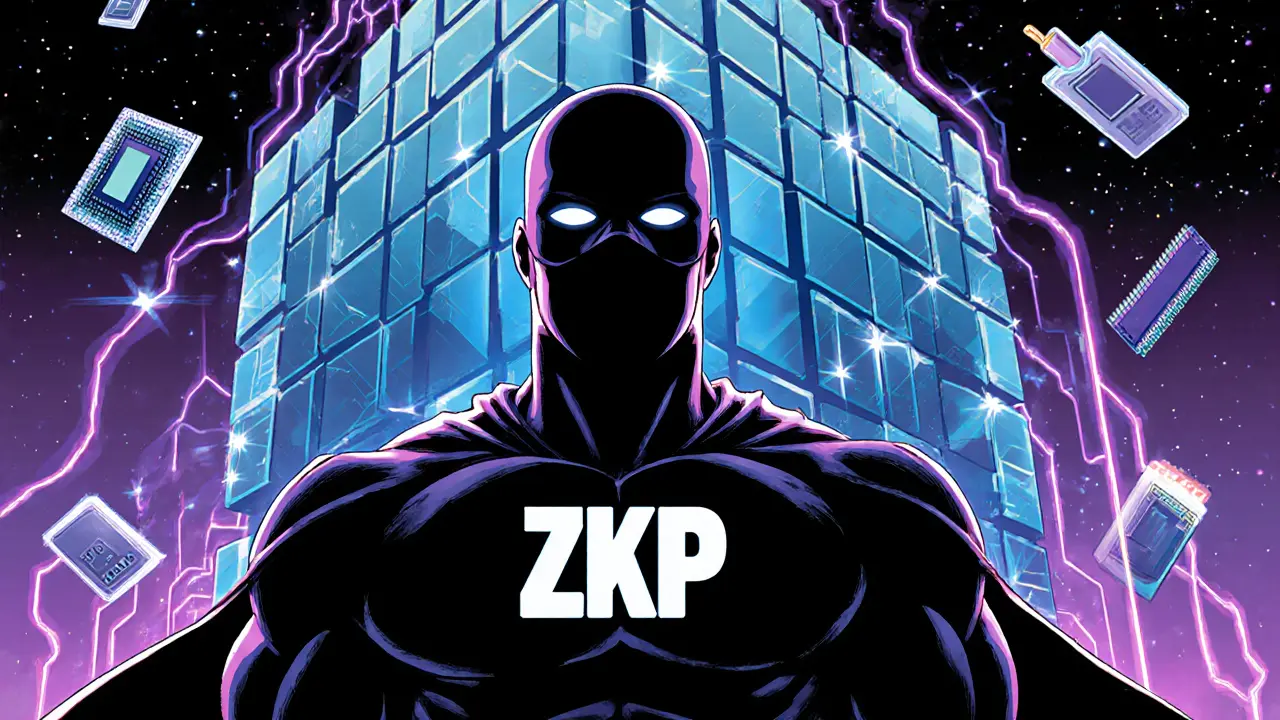Zero-Knowledge Proofs: A Practical Guide
When working with zero-knowledge proofs, cryptographic methods that let one party prove knowledge of data without revealing the data itself. Also known as ZK proofs, they are a core building block for blockchain privacy, techniques that hide transaction details on public ledgers and for many privacy‑preserving applications outside crypto. Cryptography, the science of securing communication and data provides the math behind these proofs, while specific constructions like zk-SNARKs, a type of zero‑knowledge proof that is succinct and non‑interactive make verification fast and proof size tiny. In short, zero‑knowledge proofs enable privacy‑preserving transactions on public blockchains, require solid cryptographic assumptions, and zk‑SNARKs improve verification speed without sacrificing security.
Why Zero-Knowledge Proofs Matter Today
Imagine sending money without anyone seeing the amount or the parties involved – that’s the promise of zero-knowledge proofs in practice. They power private payment systems like Zcash, enable selective disclosure in identity solutions, and even help scale blockchains by proving off‑chain computation was correct (think rollups). The newer zk-STARKs, a proof system that avoids trusted setup and offers post‑quantum security are gaining traction because they remove a major trust bottleneck and can handle larger data sets. Companies use these tools to verify user age without storing personal data, to confirm supply‑chain provenance, and to prove AI model integrity without exposing the model itself. Each use case shows how zero‑knowledge proofs turn theoretical privacy into actionable technology.
Despite the hype, there are real challenges. Trusted setup ceremonies for zk‑SNARKs can be a single point of failure, and generating proofs still costs compute power, especially for complex statements. zk‑STARKs need larger proofs, which can impact bandwidth, though they compensate with stronger security guarantees. Developers must balance these trade‑offs when choosing a proof system for a given product. Ongoing research aims to cut costs, improve tooling, and make zero‑knowledge proofs more accessible to mainstream developers. As standards evolve, expect tighter integration with wallets, SDKs that abstract away the heavy math, and broader regulatory acceptance of privacy‑preserving crypto.
Below you’ll find a curated list of articles that dive deeper into specific tokens, exchange reviews, tax guidance, and real‑world implementations—all connected by the theme of zero‑knowledge proofs. Whether you’re a beginner curious about the basics or an experienced trader looking for privacy‑focused platforms, these posts will give you actionable insights to navigate the space confidently.

Explore how zero‑knowledge proofs affect CPU, memory and bandwidth on blockchains, compare SNARK and STARK costs, and learn practical ways to cut prover and verifier overhead.
Continue Reading

Explore the clash between privacy tech and surveillance tools in cryptocurrency, covering key methods, regulatory pressure, future trends, and practical advice for users, developers, and regulators.
Continue Reading






